
Story of the Amír who bade his slave fetch some wine: the slave went off and was bringing a jug of wine, (when) an ascetic (who) was on the road admonished him that he should act righteously and threw a stone and smashed the jug; the Amír heard (of this) and resolved to punish the ascetic. That happened in the epoch of the religion of Jesus, on whom be peace, when wine had not yet been declared unlawful; but the ascetic was showing an abhorrence (for worldly pleasure) and preventing (others) from indulging themselves. حکایت آن امیر کی غلام را گفت کی می بیار غلام رفت و سبوی می آورد در راه زاهدی بود امر معروف کرد زد سنگی و سبو را بشکست امیر بشنید و قصد گوشمال زاهد کرد و این قصد در عهد دین عیسی بود علیهالسلام کی هنوز می حرام نشده بود ولیکن زاهد تقزیزی میکرد و از تنعم منع میکرد
بود امیری خوش دلی میبارهای کهف هر مخمور و هر بیچارهای
There was an Amír of merry heart, exceedingly fond of wine: (he was) the refuge of every drunkard and every resourceless person.
مشفقی مسکیننوازی عادلی جوهری زربخششی دریادلی
(He was) a compassionate man, kind to the poor and just; a jewel (of bounty), gold-lavishing, ocean-hearted;
شاه مردان و امیرالممنین راهبان و رازدان و دوستبین
A king of men and commander of the Faithful; a keeper of the Way and a knower of secrets and a discerner of friends.
دور عیسی بود و ایام مسیح خلق دلدار و کمآزار و ملیح
Twas the epoch of Jesus and the days of the Messiah: he (the Amír) was beloved of the people and unoppressive and agreeable.
آمدش مهمان بناگاهان شبی هم امیری جنس او خوشمذهبی
Suddenly one night, another Amír, a person of good principles (who was) congenial to him, came seeking his hospitality.
باده میبایستشان در نظم حال باده بود آن وقت ماذون و حلال
They wanted wine in order to enjoy themselves: at that period wine was permissible and lawful;
بادهشان کم بود و گفتا ای غلام رو سبو پر کن به ما آور مدام
(But) they had no wine, so he (the Amír) said to his slave, “Go, fill the jug and fetch us wine
از فلان راهب که دارد خمر خاص تا ز خاص و عام یابد جان خلاص
From such-and-such a Christian ascetic who has choice wine, that the soul (in us) may win release from high and low.”
جرعهای زان جام راهب آن کند که هزاران جره و خمدان کند
One draught from the Christian ascetic’s cup has the same effect as thousands of wine-jars and wine-cellars.
اندر آن می مایهی پنهانی است آنچنان که اندر عبا سلطانی است
In that (Christian’s) wine there is a hidden (spiritual) substance, even as (spiritual) sovereignty is (hidden) in the dervish-cloak.
تو بدلق پارهپاره کم نگر که سیه کردند از بیرون زر
Do not regard (merely) the tattered cloak, for they have put black on the outside of the gold.
از برای چشم بد مردود شد وز برون آن لعل دودآلود شد
On account of the evil eye he (the dervish) becomes (apparently) reprobate, and that (spiritual) ruby is tarnished with smoke on the outside.
گنج و گوهر کی میان خانههاست گنجها پیوسته در ویرانههاست
When are treasures and jewels (exposed to view) in the rooms of a house? Treasures are always (hidden) in ruins.
گنج آدم چون بویران بد دفین گشت طینش چشمبند آن لعین
Since Adam’s treasure was buried in a ruin, his clay became a bandage over the eye of the accursed (Iblís).
او نظر میکرد در طین سست سست جان همیگفتش که طینم سد تست
He (Iblís) was regarding the clay with the utmost contempt, (but) the spirit (of Adam) was saying, “My clay is a barrier to thee.”
دو سبو بستد غلام و خوش دوید در زمان در دیر رهبانان رسید
The slave took two jugs and ran with goodwill: (almost) immediately he arrived at the monastery of the Christian monks.
زر بداد و بادهی چون زر خرید سنگ داد و در عوض گوهر خرید
He paid gold and purchased wine like gold: he gave stones and bought jewels in exchange.
بادهای که آن بر سر شاهان جهد تاج زر بر تارک ساقی نهد
(’Twas) a wine that would fly to the head of kings and put a golden tiara on the crown of the cupbearer’s head.
فتنهها و شورها انگیخته بندگان و خسروان آمیخته
(By it) troubles and commotions are aroused, slaves and emperors are mingled together;
استخوانها رفته جمله جان شده تخت و تخته آن زمان یکسان شده
Bones vanish and become spirit entirely; throne and bench at that moment become alike.
وقت هشیاری چو آب و روغنند وقت مستی همچو جان اندر تنند
They (the drinkers), when sober, are as water and oil; when intoxicated, they are as the spirit in the body.
چون هریسه گشته آنجا فرق نیست نیست فرقی کاندر آنجا غرق نیست
They become like a harísa: no difference exists there: there is no difference that is not submerged there.
این چنین باده همیبرد آن غلام سوی قصر آن امیر نیکنام
The slave was carrying a wine of this sort to the palace of the Amír of good renown,
پیشش آمد زاهدی غم دیدهای خشک مغزی در بلا پیچیدهای
(When) an ascetic met him, one who had suffered anguish, whose brain was dry, and who was (writhing) in the coils of affliction;
تن ز آتشهای دل بگداخته خانه از غیر خدا پرداخته
His body melted by the fires of his heart; the house (of his heart) emptied of all but God.
گوشمال محنت بیزینهار داغها بر داغها چندین هزار
The chastisement of pitiless tribulation (had seared him with) brands on brands, (ever) so many thousands.
دیده هر ساعت دلش در اجتهاد روز و شب چفسیده او بر اجتهاد
Every hour saw his heart (engaged) in the struggle: by day and night he was firmly attached to (intent upon) the struggle.
سال و مه در خون و خاک آمیخته صبر و حلمش نیمشب بگریخته
During years and months he had been mixed up with dust and blood: (on seeing the slave) at midnight, his patience and forbearance fled (from him).
گفت زاهد در سبوها چیست آن گفت باده گفت آن کیست آن
“What is that in the jugs?” asked the ascetic. “Wine,” replied the slave. “Whose wine?” said he.
گفت آن آن فلان میر اجل گفت طالب را چنین باشد عمل
He (the slave) answered, “It belongs to so-and-so, the most honourable Amír.” Said he, “Is the seeker’s work like this?
طالب یزدان و آنگه عیش و نوش بادهی شیطان و آنگه نیم هوش
(To be) a seeker of God, and then (indulge in) pleasure and drinking! (To drink) the Devil’s wine, and then be (even) semi-intelligent!”
هوش تو بی می چنین پژمرده است هوشها باید بر آن هوش تو بست
(Even) without wine your intelligence is so shabby (that other) intelligences must be tied (added) to your (present) intelligence.
تا چه باشد هوش تو هنگام سکر ای چو مرغی گشته صید دام سکر
Consider, (then), what your intelligence will be at the time when you are intoxicated, O you who like a bird have fallen a prey to the snare of intoxication.
Special Offers
by: Reza about (category: Masnavi, Persian Poetry)


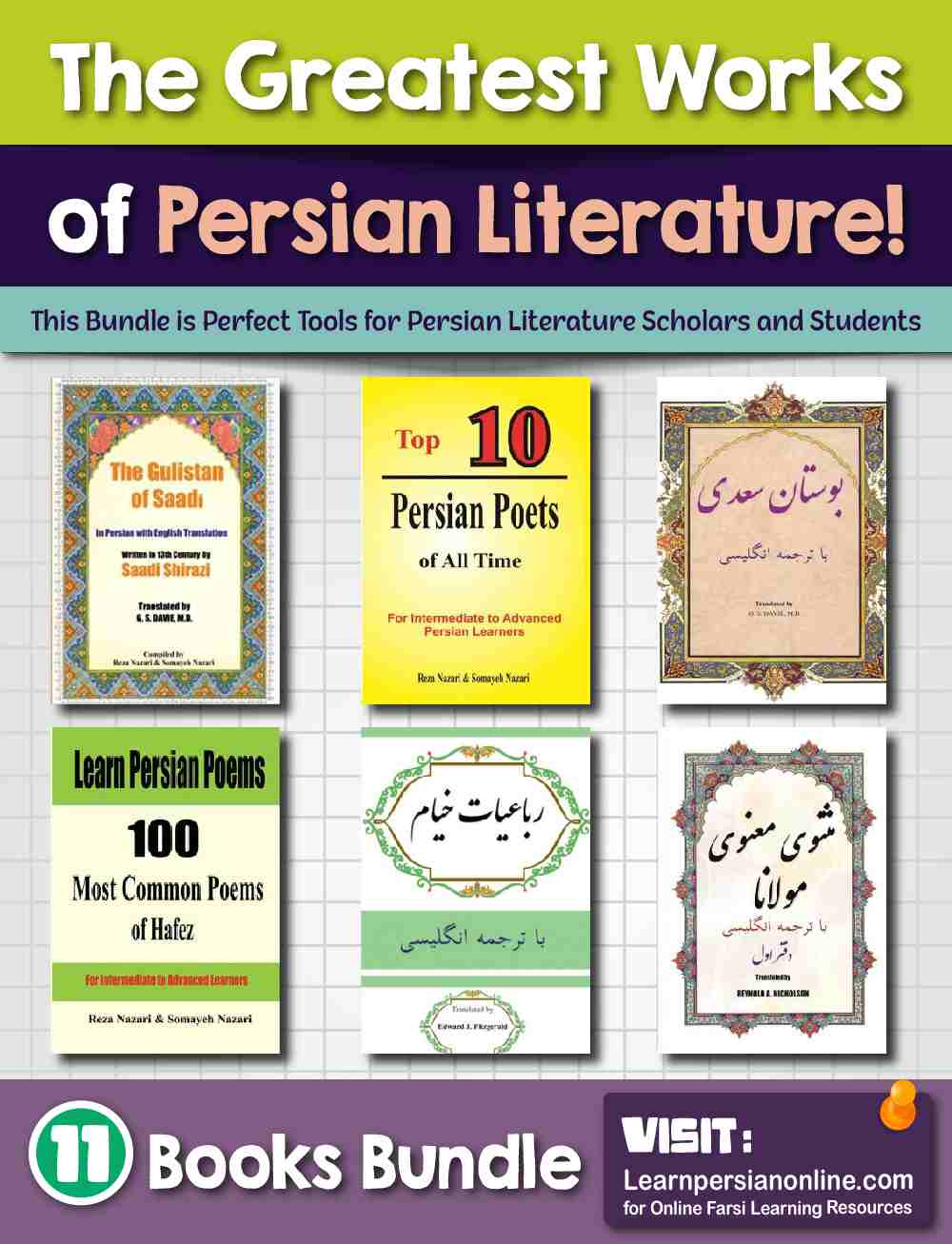
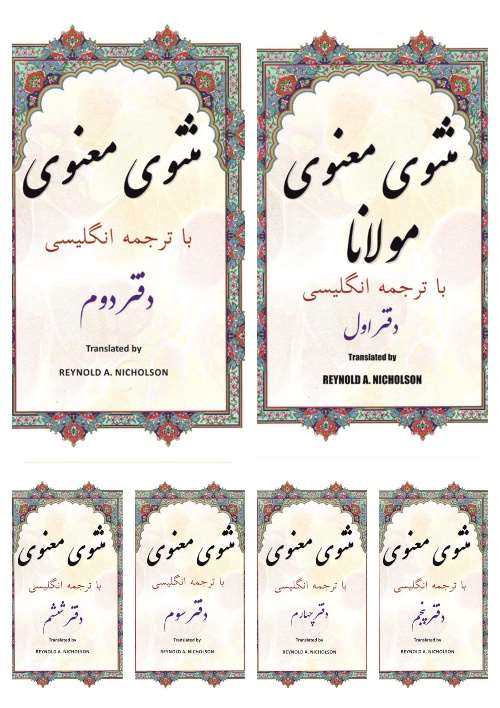
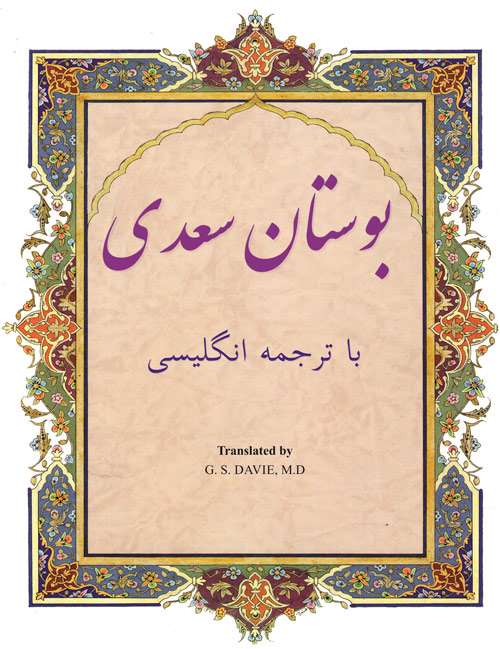
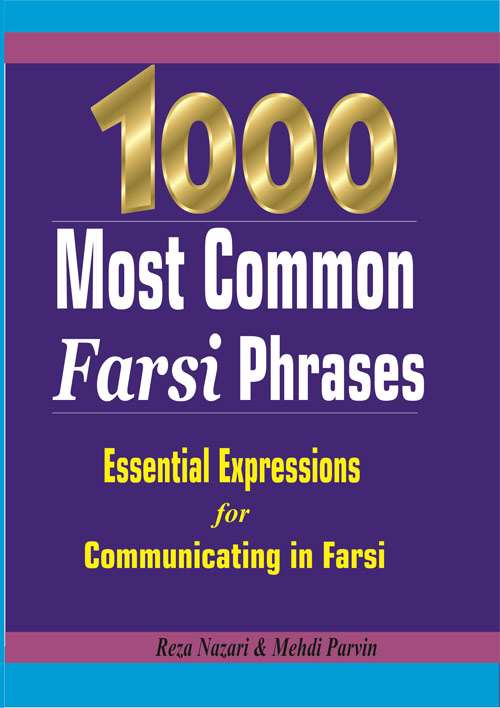
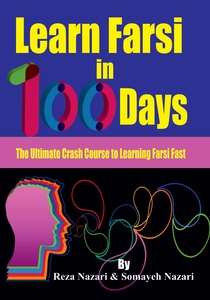






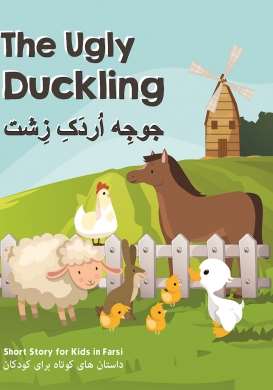
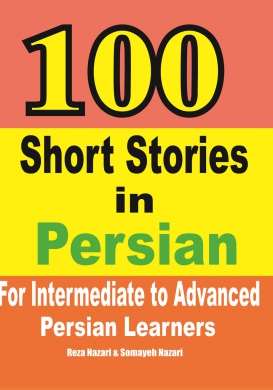

What people say about "Story of the Amír"?
No one replied yet.